hearing about it in bangkok
By Peter Dodds
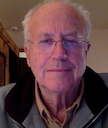 My office was in #7 WTC.
My office was in #7 WTC.
I was at a conference in Bangkok, Thailand, had been taken ill and was in the Bumrumgrad Hospital on that fateful day. My wife called me from the United States to tell me what had happened. I had been sedated, and when I woke up I thought that I had dreamt it; how wrong I was! I eventually got on a flight back to JFK and remember so vividly looking for the welcoming Twin Towers on the horizon; but nothing. I came to New York in 1971 and watched the Towers being built, so I had witnessed a dreadful cycle, something I will never forget.
twist of fate
By Gene Swanzey
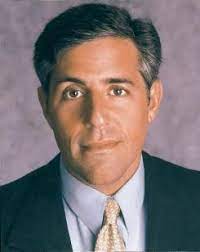 When I first heard of the Twin Towers being destroyed, I was on the train to New York from Washington, DC, heading to a lunch at Windows on the World. The lunch was to have been with the head of the Port Authority–the WTC’s landlord–and the former NYS Superintendent of Banking, Neil Levin (photo, left), who died in the destruction of the Towers. At the time I was a candidate for the Superintendent job.
When I first heard of the Twin Towers being destroyed, I was on the train to New York from Washington, DC, heading to a lunch at Windows on the World. The lunch was to have been with the head of the Port Authority–the WTC’s landlord–and the former NYS Superintendent of Banking, Neil Levin (photo, left), who died in the destruction of the Towers. At the time I was a candidate for the Superintendent job. we supported "the street"
By Tom Mulligan
We hear the explosion as the first plane hits. We look out the window on 1CMP 21 and see all the workers repairing the roof of the Fed scramble. What’s on fire? We have no idea. Is it One Liberty Plaza? It looks like a ticker tape parade outside, but all the paper is singed and burnt.
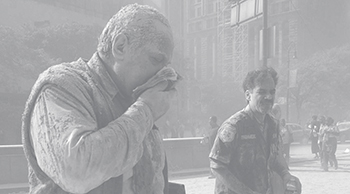 We’re told to walk north on Water Street but go back to 1CMP. We can’t get past the lobby. I look up Liberty Street at the meanest dark cloud I’ve ever seen. Once above Chambers Street, we’re under a beautiful, crystal-clear blue sky. Everyone is walking. Every church is open with people inviting everyone to sit down and have some water. A single fighter jet freezes everyone midstride as it roars straight up the island of Manhattan.
We’re told to walk north on Water Street but go back to 1CMP. We can’t get past the lobby. I look up Liberty Street at the meanest dark cloud I’ve ever seen. Once above Chambers Street, we’re under a beautiful, crystal-clear blue sky. Everyone is walking. Every church is open with people inviting everyone to sit down and have some water. A single fighter jet freezes everyone midstride as it roars straight up the island of Manhattan. a response to 9/11 opened path to second career
By Mike Prasad
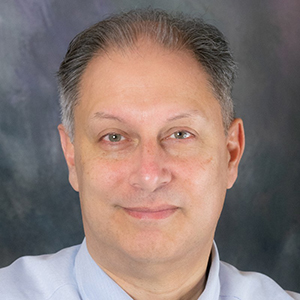 I was at work at Chase, for both WTC attacks. On the first one 1993, I was in the lower-level cafeteria at 1CMP when I felt the bomb blast. I do not recall there being too much short-term or long-term impact for me personally, as I lived in Staten Island at the time and had no physical connection to or through the World Trade Center. It is amazing how solid the bedrock of Manhattan Island is–and even though these two sites are so close together geographically, they were practically worlds apart for me. Fast forward eight years later, and my family had moved to New Jersey. I was taking NJ Transit into Penn Station, and my wife was switching to the PATH train into the WTC. (She still worked downtown at another company and was making her way through the WTC and out the escalators that fateful day, just 45 minutes before the first strike.)
I was at work at Chase, for both WTC attacks. On the first one 1993, I was in the lower-level cafeteria at 1CMP when I felt the bomb blast. I do not recall there being too much short-term or long-term impact for me personally, as I lived in Staten Island at the time and had no physical connection to or through the World Trade Center. It is amazing how solid the bedrock of Manhattan Island is–and even though these two sites are so close together geographically, they were practically worlds apart for me. Fast forward eight years later, and my family had moved to New Jersey. I was taking NJ Transit into Penn Station, and my wife was switching to the PATH train into the WTC. (She still worked downtown at another company and was making her way through the WTC and out the escalators that fateful day, just 45 minutes before the first strike.)
On Tuesday, September 11, 2001, I was at our 345 Park Avenue offices in midtown, proudly showing off to colleagues the photo of me golfing with boxer Gerry Cooney, from a charity outing in New Jersey the day before. That got interrupted with the news that an airplane had crashed into one of the World Trade Center towers. I went into the large conference room we had on the floor and got the big screen projector connected to the television broadcast system, just in time to see the second plane strike. We were then told to close the office curtains and stay away from the windows. My team’s leader, Bill Blackford, and two other relationship managers were already on their way downtown for client meetings, and we could not reach them. They made it back safely before the first tower collapsed. I had a lot of challenges reaching my wife by phone, but we did finally connect and met at the West Side Piers near the Intrepid and took a ferry back to New Jersey. Everything was a bit of a blur for the next week or so. I really do not remember what work was like for the rest of September and the first week of October, but JPMorgan Chase, amidst the financial downturn following 9/11, severed my employment exactly one month later, on October 11, 2001.
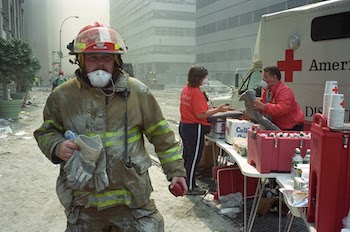 I really did not have the time to flow through the entire grief cycle stages associated with 9/11, before that new one started for me: being unemployed for the first time in my life. I started interning at Chase in my last year of college in 1986, and it was the only full-time job I had held since then. I did take the anger I had against the attack and started a Community Emergency Response Team (CERT) in my hometown, and I also started volunteering with the American Red Cross Disaster Action Team, responding to help others who got struck with those small disasters like house fires, on the evenings and weekends. I hated that feeling of loneliness and helplessness that occurred for me on 9/11 and the days, weeks and months after. For me, part of my recovery from both incidents (9/11 and getting fired) was to move through them. With the resiliency of most Americans, we may not get around them or beyond them, but we do get through crises one way or another.
I really did not have the time to flow through the entire grief cycle stages associated with 9/11, before that new one started for me: being unemployed for the first time in my life. I started interning at Chase in my last year of college in 1986, and it was the only full-time job I had held since then. I did take the anger I had against the attack and started a Community Emergency Response Team (CERT) in my hometown, and I also started volunteering with the American Red Cross Disaster Action Team, responding to help others who got struck with those small disasters like house fires, on the evenings and weekends. I hated that feeling of loneliness and helplessness that occurred for me on 9/11 and the days, weeks and months after. For me, part of my recovery from both incidents (9/11 and getting fired) was to move through them. With the resiliency of most Americans, we may not get around them or beyond them, but we do get through crises one way or another.
I have written previously about my career history within Chase, including my disdain for the new (to me, at least) corporate culture of “greed is good” above teamwork, but at least Chase had a good severance program that included a job training element. I used it to take a non-credit college class and got a New Jersey Real Estate license. I also took my self-earned securities licenses (the Series 7 & 63 which were–lucky for me–required by JPMorgan for its sales staff) into a new job at H&R Block Financial Advisors (HRBFA) in various locations in the same county I lived in. Candidly, I have to say that I rarely enjoyed that job over the five years I was there. I do not think of myself as a salesperson, and retail stock brokerage is a very tough business to start a career in; if you have no clients that provide you recurring income (brokerage fees and commissions), you make no money. I do not think I have ever cursed as much out loud, before or since, as I did while working at that firm. We swore at each other (and about the clients) on days we made money, as well as the many days we did not.
Still, that job had some corporate perks, one of which was that they were owned by H&R Block, which had a strong community presence and position around the country. My manager put me in for a community service award and I won it one year. That national recognition came with a $5,000 award (for me to give away, not to keep), part of which I allocated to the American Red Cross. In 2005, I became a Branch Office Manager for HRBFA–and started the commute back into NYC once again. The H&R Block Financial office was in midtown on Park Avenue again, very close to the last Chase office I had in 2001. The Branch Office Manager role has terrible hours and lots of work for little pay. It is still a sales job, only now you are trying to poach other brokers (and their books of business) to join your firm. I had to hone my own personal ethics at my own financial peril. It was nearly impossible to find personal revenue without some level of disservice to the clients. I was miserable. As luck would have it once again, another opportunity came my way–back in New Jersey. There was actually a paid job working for the Red Cross, one that paid me more than working at HRBFA–and the commute was only six minutes from my house. In 2008, I took that job in a heartbeat, without looking back. I have not worked in NYC since.
I spent the next 12 years working and volunteering in various Emergency Management roles, for both government and non-governmental organizations. It has become a second career, for sure. I certainly took many of my tech skills and corporate leadership elements from my time at Chase (we act very similarly as meta-leaders, directing the work of others (who do not necessarily work in the same chain of command) towards a common goal or objective. Usually, these roles require really good teamwork, too. I was hoping to do this full-time until I retired, but that took a sharp turn off the road, in many ways due to COVID-19. Currently I am consulting in this field, writing quite a bit, and helping organizations with their crisis action and business continuity planning. This chapter in my story is still being written.
like a war zone
By Susan Friedland Mittler
I stopped at my cousin's house in Gramercy Park and much later, was able to catch a train back to New Jersey.
This memory is so clear in my mind; I will never forget that horrific day that changed my life forever.
Thank you for allowing me to document these thoughts.
how chase's involvement on 9/11 started
By Ralph Aiello
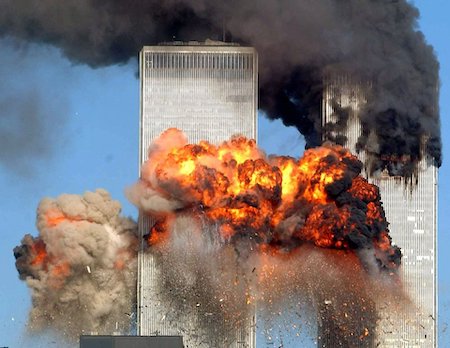 The morning of 9/11, I had a meeting with Claude Weir, SVP and Director of Employee Relations. Our meeting was scheduled for 9 am. I arrived at Weir's office on the 27th floor at 270 Park Avenue at 8:45 that morning. When I entered, he was watching the television. Weir said to me, "Ralph, some fool got too close to the North Tower of the World Trade Center and crashed into it." As we watched the coverage of the crash, we then noticed a second plane aiming towards the South Tower. It headed directly towards and crashed into the South Tower. I mentioned to Weir that we had a branch in the South Tower, as well as employees on the 11th Floor.
The morning of 9/11, I had a meeting with Claude Weir, SVP and Director of Employee Relations. Our meeting was scheduled for 9 am. I arrived at Weir's office on the 27th floor at 270 Park Avenue at 8:45 that morning. When I entered, he was watching the television. Weir said to me, "Ralph, some fool got too close to the North Tower of the World Trade Center and crashed into it." As we watched the coverage of the crash, we then noticed a second plane aiming towards the South Tower. It headed directly towards and crashed into the South Tower. I mentioned to Weir that we had a branch in the South Tower, as well as employees on the 11th Floor.broken but whole
By Robert C. Carroll
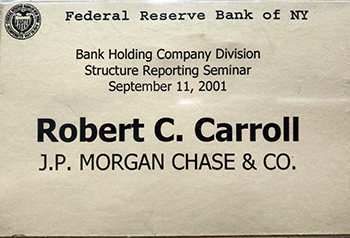
two personal losses
By Penny Quinn
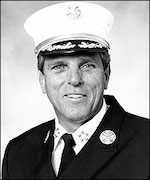 When we were friends with Peter, he was an extremely dedicated volunteer fire fighter with the Farmingdale Fire Department. I saw him at his cousins' weddings and I saw him at HS reunions. We weren't close - but close enough to know that he was the nicest, friendliest, warmest person one could be, as is his wife.
When we were friends with Peter, he was an extremely dedicated volunteer fire fighter with the Farmingdale Fire Department. I saw him at his cousins' weddings and I saw him at HS reunions. We weren't close - but close enough to know that he was the nicest, friendliest, warmest person one could be, as is his wife.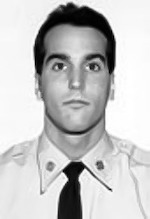 This in itself, would have been a tragic loss. Two days later, I found out that my former manager at the Bellmore branch of Manufactureres Hanover Trust Co. lost one of his two sons, a firefighter, Tom Mingione. His wife had always come into the bank to visit with their two beautiful sons. Now one of them was gone. I had kept somewhat in touch - and of course- there was a big change in Mr. Mingione's life that changed him deeply. He was Gerry Mingione - a reallly, really nice person and great boss.
This in itself, would have been a tragic loss. Two days later, I found out that my former manager at the Bellmore branch of Manufactureres Hanover Trust Co. lost one of his two sons, a firefighter, Tom Mingione. His wife had always come into the bank to visit with their two beautiful sons. Now one of them was gone. I had kept somewhat in touch - and of course- there was a big change in Mr. Mingione's life that changed him deeply. He was Gerry Mingione - a reallly, really nice person and great boss.
trying to get home
By Paul Quinn | SVP, Personal Credit Services
Tony had just finished shining my shoes when we heard a blast; thinking like typical New Yorkers, we felt it was a Con Ed manhole cover exploding. Tony left my office and immediately came back in to say that a plane hit the World Trade Center. It was a beautiful morning and I just knew it was not an accident. I went to the area looking at the World Trade Center and saw the second plane hit the other tower and saw people fall or jump from the burning towers.
My car was parked in the garage at 1 Chase Plaza and at 2 in the afternoon I left with a few friends who also lived in New Jersey. I picked up a worker who's had a leg injury and wanted to get to his daughter's house in Stuyvesant Town. I was able to drop him off on the FDR Drive as close to his daughter's place as possible. I also picked up another individual who wanted to get to Westchester County; all the tunnels and GW Bridge were closed, so I drove him to an area before the Tappan Zee.It was the only time I was on the FDR Drive with no other cars–only a fire truck and police car without lights or sirens. That night my wife and I attended a multi- denominational church service and began to realize how fortunate we were!
feeling it in texas
By Gail Cieszkiewicz
 I am a survivor from Texas. That day I had dropped my daughter off at school and was returning home for a conference call with my boss. I was a Chase Texas employee under Marc Shapiro (when we were Texas Commerce Bank), before we merged with Chemical. I was a finance team manager reporting to New York.
I am a survivor from Texas. That day I had dropped my daughter off at school and was returning home for a conference call with my boss. I was a Chase Texas employee under Marc Shapiro (when we were Texas Commerce Bank), before we merged with Chemical. I was a finance team manager reporting to New York.from the October 2001 Chase Alumni Association Newsletter
letters by CAA President Hans van den Houten, note by newsletter editor Janet Besso Becker and letter by Chase alum Tony Zenna.
in the aftermath of september 11th
October 21, 2001
Dear Alumni,
 Today, nearly six weeks after the tragedy at the World Trade Center, I would like to just say a few words to express my feelings to so many of you who have sent e-mail, faxes and called from many parts of the world to inquire about the well-being of your friends and colleagues within and outside our organization. We felt tremendously close to so many during those harrowing first days of the disaster and the feeling of a large family is perhaps the closest we can come to describing the mood that was conveyed by your actions. That mood was prevalent in New York those early days, when we were dazed, in trance and living life as if we just watched an unreal horror story develop in front of our eyes.
Today, nearly six weeks after the tragedy at the World Trade Center, I would like to just say a few words to express my feelings to so many of you who have sent e-mail, faxes and called from many parts of the world to inquire about the well-being of your friends and colleagues within and outside our organization. We felt tremendously close to so many during those harrowing first days of the disaster and the feeling of a large family is perhaps the closest we can come to describing the mood that was conveyed by your actions. That mood was prevalent in New York those early days, when we were dazed, in trance and living life as if we just watched an unreal horror story develop in front of our eyes.
I, for one, watched the tragedy unfold from a distance on the 51st floor of our office. The burning towers, brought even closer through binoculars and telescope, seemed so surreal in the unfolding sequence of events. The glow of yellow and red flames burning more inside than outside the buildings with plumes of black and gray-lined clouds of smoke that drifted eastward towards Brooklyn while obscuring the top of the towers. The radio informed us of the actual happenings closer to the scene of horror with a stream of anxiety clogging the airwaves when the news broke of one plane hitting the Pentagon and yet another crashing in Pennsylvania. We thought at least two more planes were hijacked and contradictory reports mingled with the reality we faced in front of us. The collapse of the first tower, WTC 2 brought clouds of smoke bulging upward and east obscuring the southern tip of Manhattan and leaving enough space between the smoking mess to discern a void where once this proud building filled our view. Only shortly afterward, when I returned after a few minutes’ absence from the room, did I witness the last gasp of the North Tower enveloped with even greater thrusts of clouds of dust and smoke that now devastated part of Manhattan’s once glorious World Trade Center. We were stunned, speechless, not believing what we were seeing, and slowly we came to the realization that what we had just witnessed was true and would forever leave a void and scar not only in that skyline we had grown to love, but within our psyche, deep inside and thoroughly wounded.
This, my friends, is one observation, albeit from afar, but so real and painfully true, that I wanted to give you this impression and wish that I had never seen this horror developing on such a beautiful day in New York.
I leave you with my wishes that we continue our lives peacefully, that those in power will be able to eradicate the evil launched so cruelly upon us and, that we will remember those who parted so suddenly and unexpectedly forever.
With silent greetings and wishes of strength to all those who need to regroup in these days of pain and sorrow,
Hans van den Houten
As many of you have heard by now, the Association made a $2,000 contribution to the Firefighters Emergency Fund. The following is the letter we sent along with our donation International Association of Firefighters:
EMERGENCY FUND/DISASTER RELIEF
1750 New York Avenue, N.W.
Washington, DC 20005
September 14, 2001
Dear Sirs,
The heartrending accounts of the heroic efforts to save lives by the New York firemen, assisted by so many
others from surrounding towns prompts me to send you the enclosed check in the amount of $2000, as a small
token of support of our Association. We have alerted our membership of our gift and hope that individual
donations may also find their way to your offices.
Sincerely yours,
Hans van den Houten
President
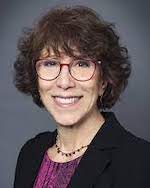 The story of Tony Zenna and me is so typical of what was great about Chase and what is so great about our
The story of Tony Zenna and me is so typical of what was great about Chase and what is so great about our
Association. We never met at the Bank. He left before I even started. Yet we came together years later because of
the Alumni Directory and business and had gotten to know each other well. I knew his office was close to the top
of one of the towers. I had been there to see him. I did not know if he was safe for a week. Could not reach him
and could not find anyone else who had. But as you will see from the following story, Tony was lucky. His story
is like so many others we have all heard. – Janet Besso Becker
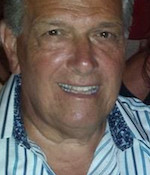 I worked at Chase long ago, from 1967-1971 in the Int’l Division (Far East and Oceania Zone). I worked with Ken Arndt. I left Chase and was hired by a foreign bank to start up a New York Operation. I started my recruiting company (Zenna Consulting) in 1982 at 150 Broadway. We are a recruiting/search firm servicing the financial services industry including commercial and foreign banks, and broker-dealers. Zenna Consulting is an approved vendor at Chase, although I am not sure where we stand after the merger. Our assignments are in the $75-200K range, primarily in New York although we do have clients in Jersey City and Connecticut.
I worked at Chase long ago, from 1967-1971 in the Int’l Division (Far East and Oceania Zone). I worked with Ken Arndt. I left Chase and was hired by a foreign bank to start up a New York Operation. I started my recruiting company (Zenna Consulting) in 1982 at 150 Broadway. We are a recruiting/search firm servicing the financial services industry including commercial and foreign banks, and broker-dealers. Zenna Consulting is an approved vendor at Chase, although I am not sure where we stand after the merger. Our assignments are in the $75-200K range, primarily in New York although we do have clients in Jersey City and Connecticut.
We moved to One World Trade Center on the 79th floor in February 1997, four years after the bombing in 1993. Security had been tightened and we always felt safe. We signed a new two-year lease this past March. We were a group of seven. We lost two people who worked directly with me along with four receptionists/ secretaries who supported us in the shared space we occupied. Of the remaining five of us, two were travelling to the office, one was on vacation, one was ill at home, and I was just leaving my home when the first plane hit 1 WTC. I was due in at 8 am but decided to go in later. I had not been feeling well and we were not very busy. I had only returned to work the day before (September 10th), after being out since August 2nd. God was very kind to me!
Our office faced north (Empire State Building). The plane was flying south and hit above the 79th floor. Our people survived the crash. We spoke with them at 9:10. One called his brother at 10:00 and one of the women called her husband at 10:15. They were trapped because of collapsing ceilings, walls, and floors. Help had arrived but the building collapsed at 10:29. They were all exceedingly kind and caring people. We will always keep them in our prayers. I know 25 people who perished in the attack. It is awful. My family and friends have been urging me to get going again for my own sanity and to show the evildoers that
they cannot break our spirit. It is with this spirit and the memory of those we lost that I started working again today. – Tony Zenna
